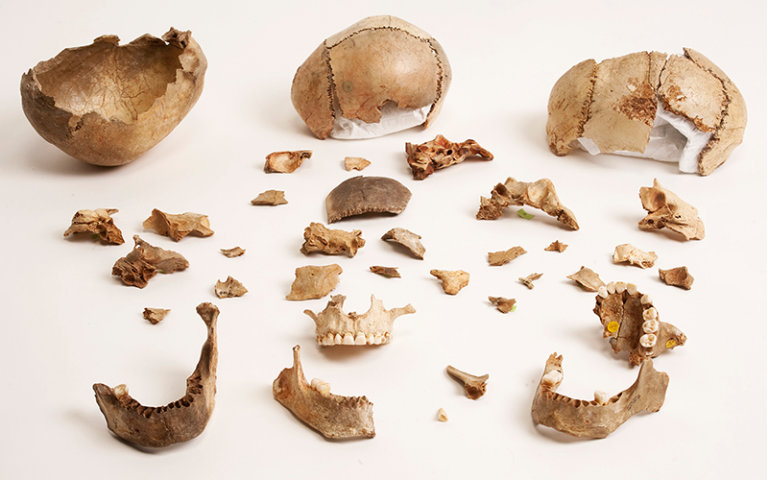Oldest human DNA in UK reveals two distinct post-Ice Age populations
24 October 2022
Collaborative research involving Rhiannon Stevens and Hazel Reade (UCL Institute of Archaeology) explores the first genetic data from Palaeolithic human individuals in the UK - the oldest human DNA obtained from the British Isles so far.

The new study, published today in Nature Ecology and Evolution - by Rhiannon Stevens and Hazel Reade from the UCL Institute of Archaeology, together with colleagues from the Natural History Museum and the Francis Crick Institute - reveals for the first time that the recolonisation of Britain at the end of the last Ice Age consisted of at least two groups with distinct origins and cultures.
There are very few human remains of this age in Britain. DNA evidence from an individual from Gough’s Cave in Somerset (who died about 15,000 years ago), and an individual from Kendrick’s Cave in North Wales (from about 13,500 years ago), shows that they were from two distinct populations, which moved into Britain at the end of the last Ice Age.
These two populations were also culturally distinct in what they ate, and how they buried their dead, and suggest a dynamic and changing population in Britain at this time.
According to Rhiannon:
“The two individuals from Britain differ not only in their genetic ancestry profiles but also in their mortuary practices and their diets and ecologies. Caution is, however, needed as we only have data from two Palaeolithic individuals from Britain and the archaeological evidence from across Europe suggest that the relationship between genetic signatures and archaeological cultures is likely to be more complex.”
The study, which involved radiocarbon dating and analysis as well as DNA extraction and sequencing, shows that it is possible to obtain useful genetic information from some of the oldest human skeletal material in Britain, and in the case of Kendrick’s Cave, from material that was excavated in the late 19th century.
Read more
Citation: Charlton, S., Brace, S., Hajdinjak, M. et al. Dual ancestries and ecologies of the Late Glacial Palaeolithic in Britain. Nat Ecol Evol (2022).
https://doi.org/10.1038/s41559-022-01883-z
Image credit: Trustees of the Natural History Museum
 Close
Close

